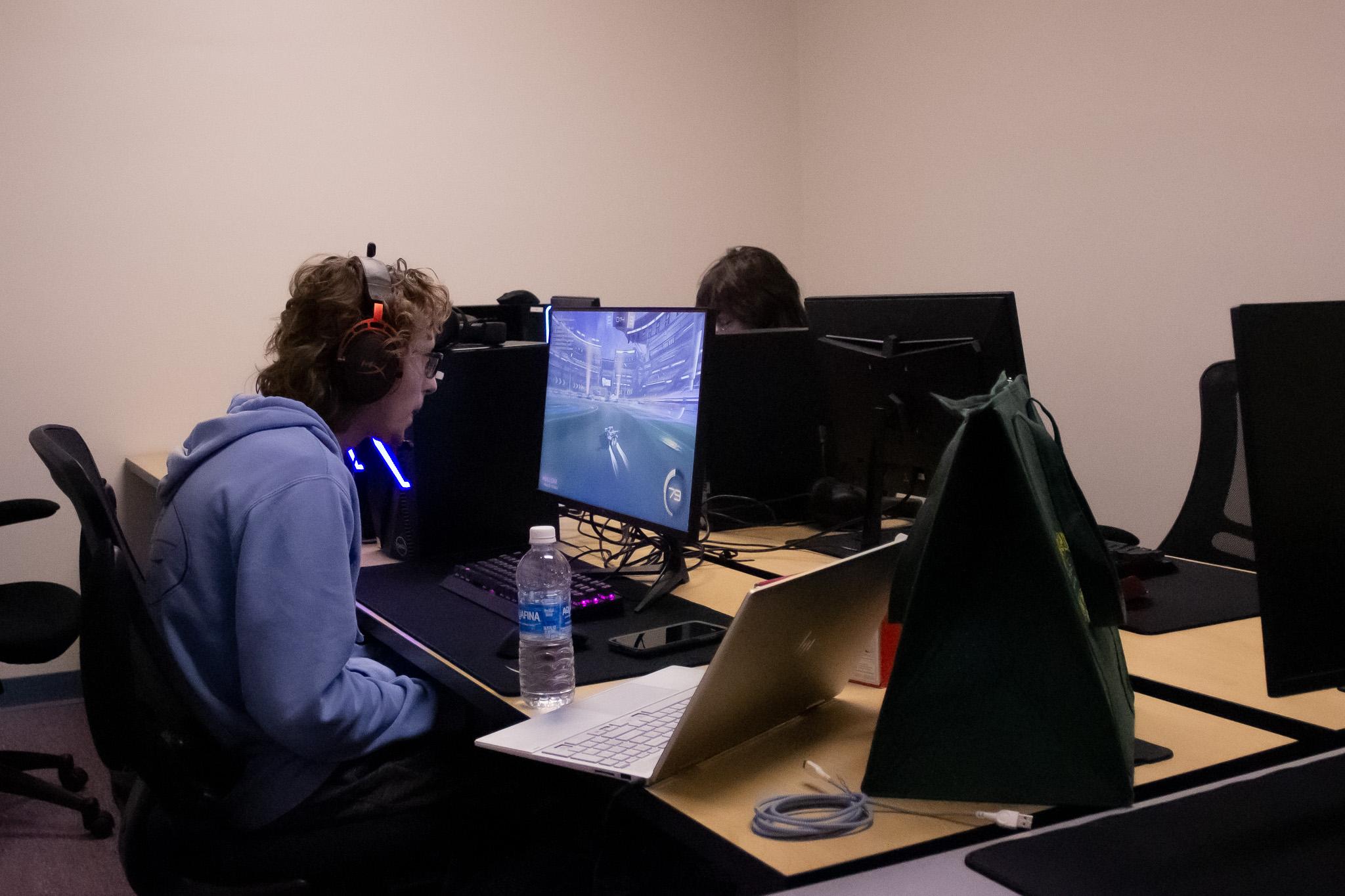The University of Rhode Island’s Rhody Esports Coalition received $10,000 for an electronic sports lab on campus for competitive video games, which will be accessible to all students, staff and faculty.
Over the next three years, this funding amount will be allocated annually to the new esports lab, which opened on Oct. 1 in the Memorial Union, according to Esports Club President Nadia Sutyrina. The URI Esports Club is working with the coalition to start this project.
The money given to the program was provided through the information technology department’s yearly budget line, according to Michelle Rogers, director of the coalition and staff member of IT services.
“There’s a lot of great potential and opportunities for what it can grow into in the future,” Rogers said.
The funds went toward buying new personal gaming computers, supporting equipment for the computers and room upgrades for the lab, according to Sutyrina.
The lab is managed by both the Rhody Esports Coalition and the leadership of URI’s Esports Club, according to Rogers. This is the first time a technology lab is being co-managed by both students and staff members.
“[The lab] is a pilot to see how it goes and where it can go, but because of this there are no staffing lines to support this lab on campus,” Rogers said. “So we had to go in and find a cooperative way to manage it with the students.”
The collaboration is an opportunity for students to learn about the administrative work of managing a lab on campus, Rogers said. For example, purchasing approval for new games to be installed on the esports lab computers can take up to three to four months.
“It has to go through the entire purchasing process even if [the esports coalition] are not purchasing it,” Rogers said. “It has to go through all the same legal and security reviews, the whole works. I think they were surprised by that.”
Four out of five of the current computers in the lab were donated by the IT department, according to Sutyrina. The remaining computer was purchased with the budget money.
Gaming computers that have the ability to be used in esports competitions are expensive, ranging from $2,500 to $8,000, according to Rogers. This does not include other costs like keyboards, headsets and Wi-Fi.
Another large portion of this year’s allocated budget money was used to upgrade the air conditioning in the lab, Rogers said. With the amount of technology running within the lab the small room can easily overheat, which is why it’s important to have high quality air conditioning.
The Esports Club is waiting on recognition from the university so they can start fundraising events and win money in professional tournaments, leaving the club in a waiting period, according to Sutyrina.
Sutyrina hopes that within the next couple of years, the club will be able to buy 10 computers with the budget money so they can host tournaments in the space.
Esports programs at other universities can be intertwined with certain degrees, such as computer science and media communications, according to Rogers. She hopes that if the esports lab grows, it could provide job opportunities and career related experiences that students can utilize in the future.





